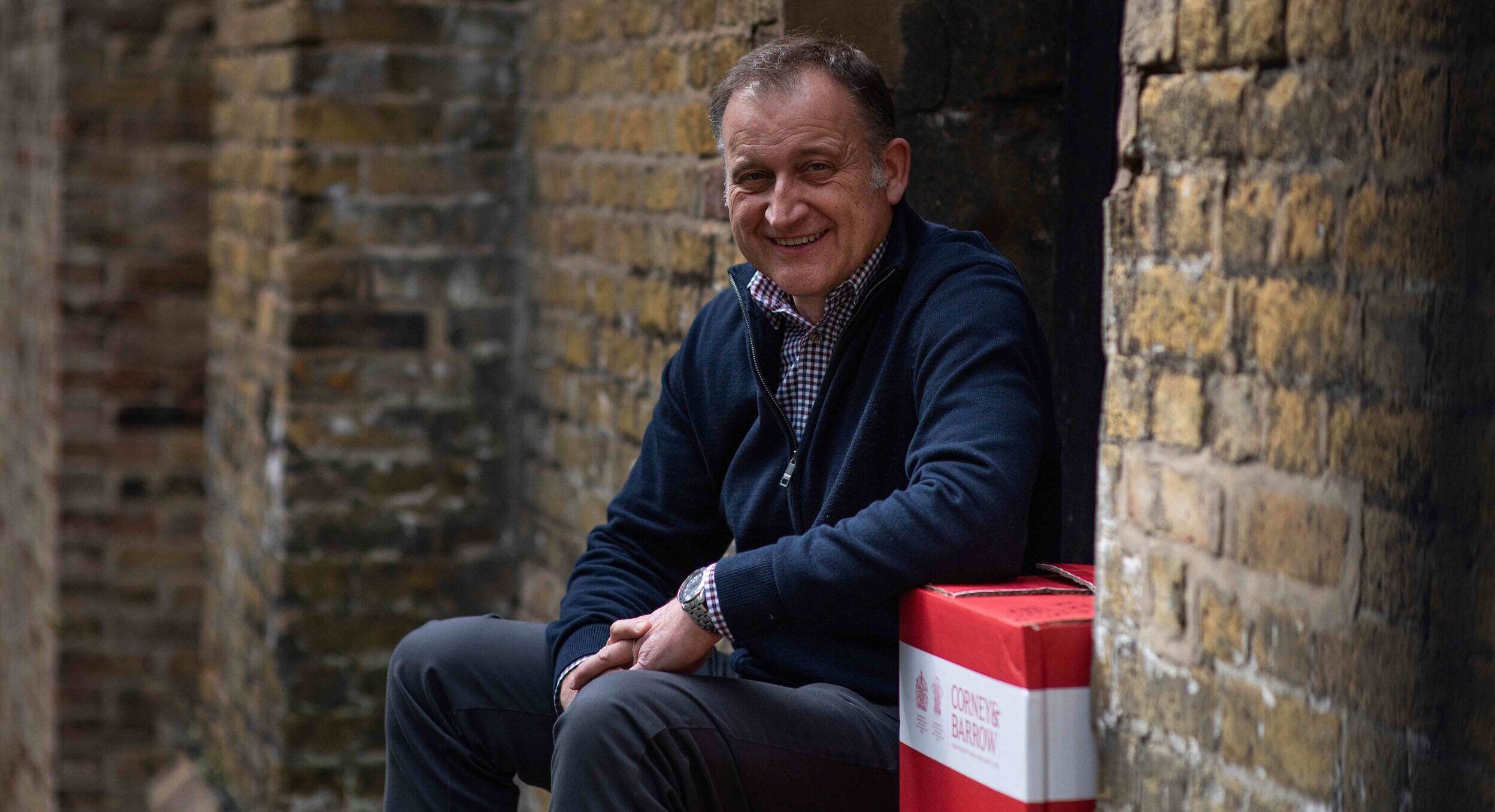Buying and sourcing the best wines is only part of Corney & Barrow’s responsibility for its customers. Investing in its logistics and supply chains in order to supply them on time is just as important, explains Mark Baskett.
Tell us about your role and what key targets and responsibilities you have at Corney & Barrow?
I am head of Corney & Barrow’s supply chain, which has four principal areas of responsibility that I oversee. Firstly, the supply chain planning team manages our forecasting, stock replenishment process and inbound shipping of wines from our suppliers into our warehouse. Logistics, looking after the warehousing and distribution of stock held in our warehouse. Customer Services who look after customer orders and the delivery of wines to our customers around the world and the export of wines to our Asian businesses.
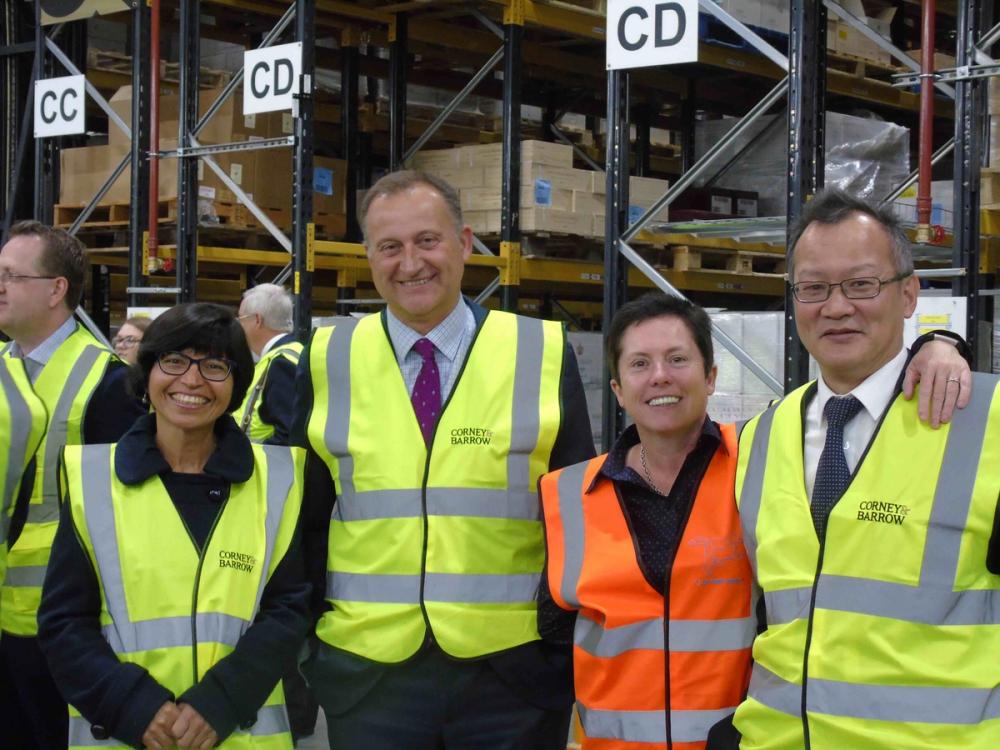
Mark Baskett, centre, says the business is constantly looking at how it can make its supply chains both more efficient and more sustainable
To achieve all this, we have a specialised operations team of 13 looking after the day-to-day activities and ensuring that each part of the supply chain runs smoothly, giving the highest level of service to our customers.
I was once told, “If you’re not keeping score, you’re only practising”, so it is important that we measure what we do with stretching targets. We do this with a monthly set of key performance indicators (KPIs) that measure the effectiveness of our supply chain against key activities such as stock availability, inventory accuracy, stock turnover and delivery performance.
How are those responsibilities changing?
The principles stay the same, but the way we do things is changing. Technology enhancements improve and change the way we pick orders, stock check wines in the warehouse, plan our delivery routes, track our deliveries and measure vehicle and driver performance. Robots and drones are already being used in large distribution centres and will soon be the norm across all logistics sectors. The other substantial change impacting all businesses are the carbon neutral and net zero goals, which are driving significant changes across all aspects of all businesses.
Tell us about your warehouse operation and the different services you provide for customers?
Our business is made up of two main areas: On-trade and private customers who buy merchanting wines for delivery to bars, restaurants, or private addresses. We also store fine wines bought en primeur on behalf of our customers to ensure optimum conditions and provenance. Our customers then have the option to sell their stored wines through our broking team later if they wish.
We have around 35 staff made up of drivers, warehousemen and an admin team working hard to receipt, stock check, pick and deliver our customers’ orders.We have a fleet of 10 vans that deliver the next day for London and on set delivery days outside London. The vans are all in the Corney & Barrow red livery and have satellite tracking and cameras for security purposes. We have also just introduced delivery tracking so our private customers can track their delivery in real-time.
I am immensely proud of our warehouse facility. In 2019, we transitioned part of the existing warehouse we occupied at Hoddesdon into a 70K sq. ft dedicated temperature and humidified chamber for all C&B’s storage.
The transition of the warehouse involved new racking specifically designed for the storage of fine wines, a complete fit-out of a new HVAC system to control temperature and humidity, as well as an in-rack sprinkler system. It also has a state-of-the-art biometric security system, which restricts entry and the use of MHE in the C&B chamber.
This refit took six months to complete and was started in December during our peak season. We then had the no small feat of moving all the cases of fine wine into the new warehouse over the next 18 months from our existing storage facility. All this was completed without any reduction in service levels and during the Covid restrictions.
What other services are you looking to offer in the future?
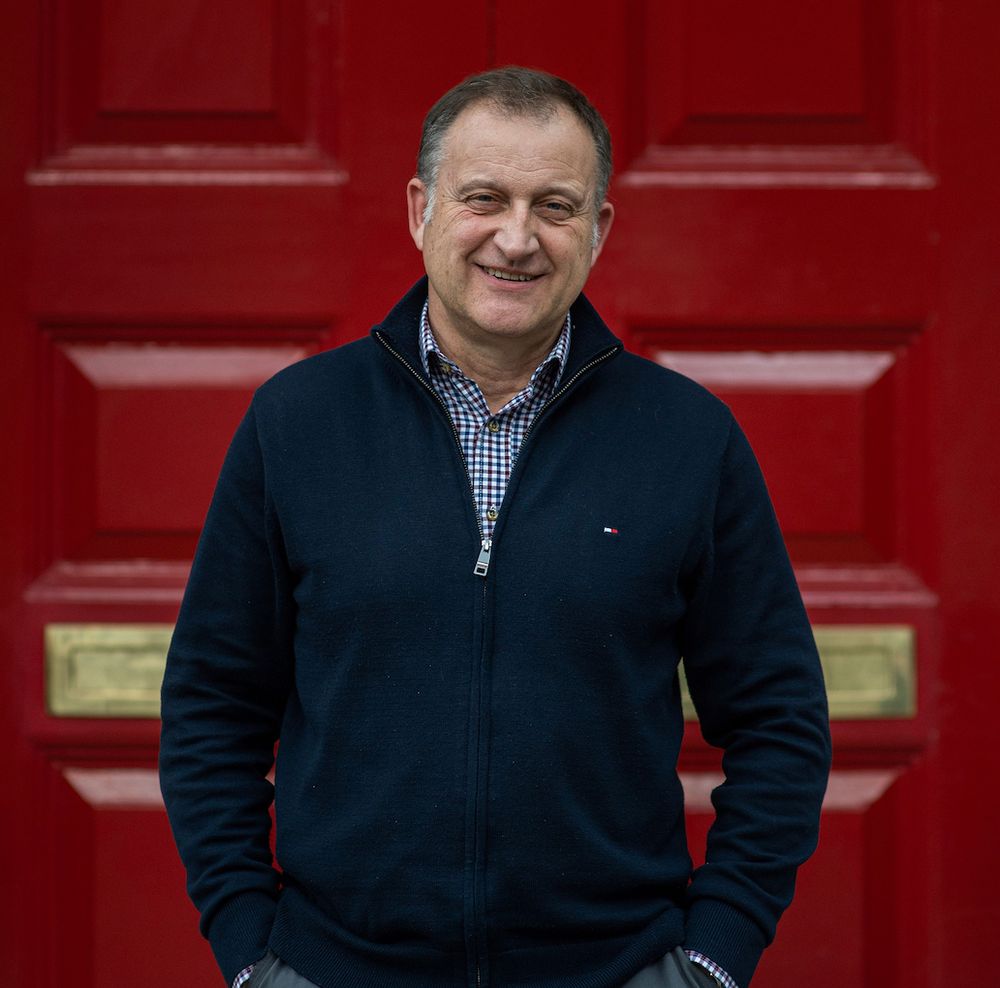
Mark Baskett says he is “immensely proud” of the work Corney & Barrow has done to improve its warehousing facilities
Most of our future service offerings will be technology-driven. Paperless deliveries with proof of delivery signed on glass, as well as phase two improvements to our order tracking system, Also, we are doing a lot of work on our route planning and van utilisation to make us more sustainable by reducing the miles we travel and lowering our carbon footprint.
What are the biggest challenges/opportunities you face in your role and how have you resolved them?
The biggest challenges we have are also our biggest opportunities. We will continually strive to give ourselves an advantage over our competitors by improving our service offerings and utilising new technologies where appropriate. A big challenge for us is the need to look at ways of reducing the constant additional costs being put into the supply chain from inflationary and currency trends, utility charges and the cost of fuel. Sustainability is also a challenge but a massive opportunity for our business as we move towards net zero in the most efficient and cost-effective way.
What steps are you taking to become more sustainable?
We are looking to make informed and balanced decisions that include consideration of our environment, sustainability, and costs. For example, we will be looking to bring in more stock on lower carbon transportation like trains and slow-steaming containerships that use biofuel.
If possible, we will look to change our delivery fleet to hydrogen / electric at their next renewal, which is due in January 2025. We want to move to a paperless warehouse using electronic hand terminals to pick orders while also moving to an EPOD (electronic proof of delivery) system, saving the equivalent amount of paper that would otherwise have been used to print picking and delivery notes. Additionally, we will look to engage with our freight forwarding partners, collaborating with them to understand and reduce our carbon footprint.
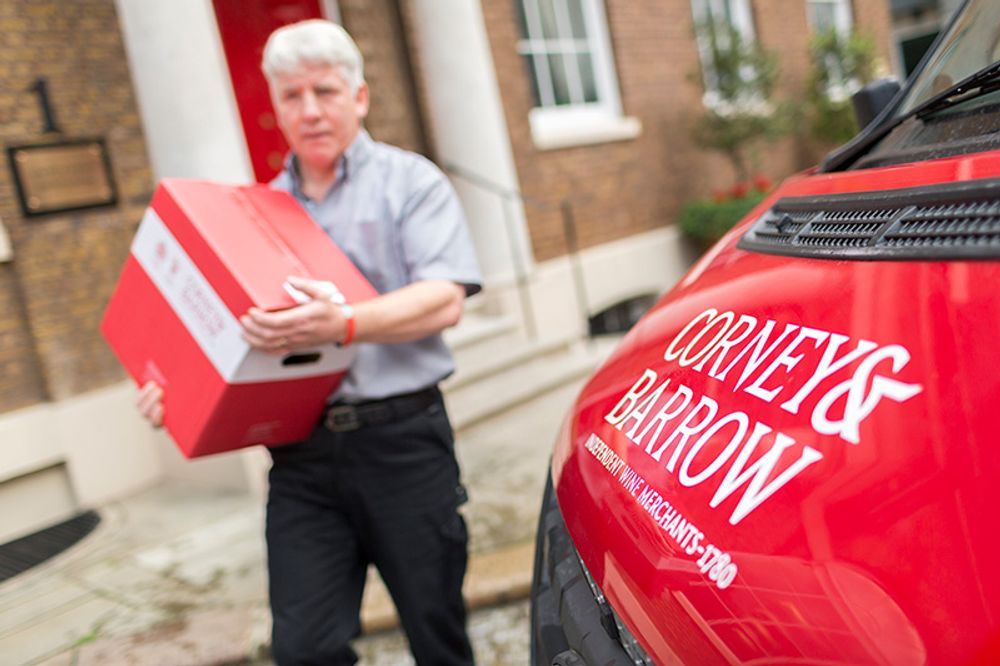
Corney & Barrow prides itself on servicing its customers with the wines they need when they need them
How do you work with the wider business to reach your sustainability targets?
C&B work with a company called Planet Mark who is guiding us through the challenges of sustainability. As part of this process, we have a ‘Green Team’ made up of staff members from across our business who question how and why we do things the way we do and share ideas on how to improve our sustainability across the business, along with helping implement better practices.
What have been the biggest achievements in terms of the sustainable steps you have taken so far?
By consolidating all our wines at one location, we reduced the movement of wines between warehouses, reducing our miles and carbon footprint. Hoddesdon is also closer to the UK ports we use for inbound shipments, so again this has had a positive impact on carbon emissions.
The warehouse uses green energy and has LED and movement-sensitive lighting, only using energy in areas where our staff are working. All our forklift trucks are electric rather than diesel or gas-powered. We also re-use pallets that come into the warehouse from our suppliers, helping to reduce the number of trees that are cut down to make new ones.
We use a routing and scheduling system which calculates the most efficient routes – doing fewer miles and using less diesel, which reduces fuel costs and helps cut carbon emissions.
For example, on the back of the changes we have made, we have reduced the miles driven by 24,000 last year and reduced the number of routes (journeys) we made by 101. We also use a driver management system on our vans, which measures driving performance and the vehicle’s fuel consumption. We always try and order in full loads if possible and maximise the amount of wine we put into a trailer or container. We will quite often collect from several suppliers on a ‘milk run’ basis to maximise the space we use in a container or trailer.
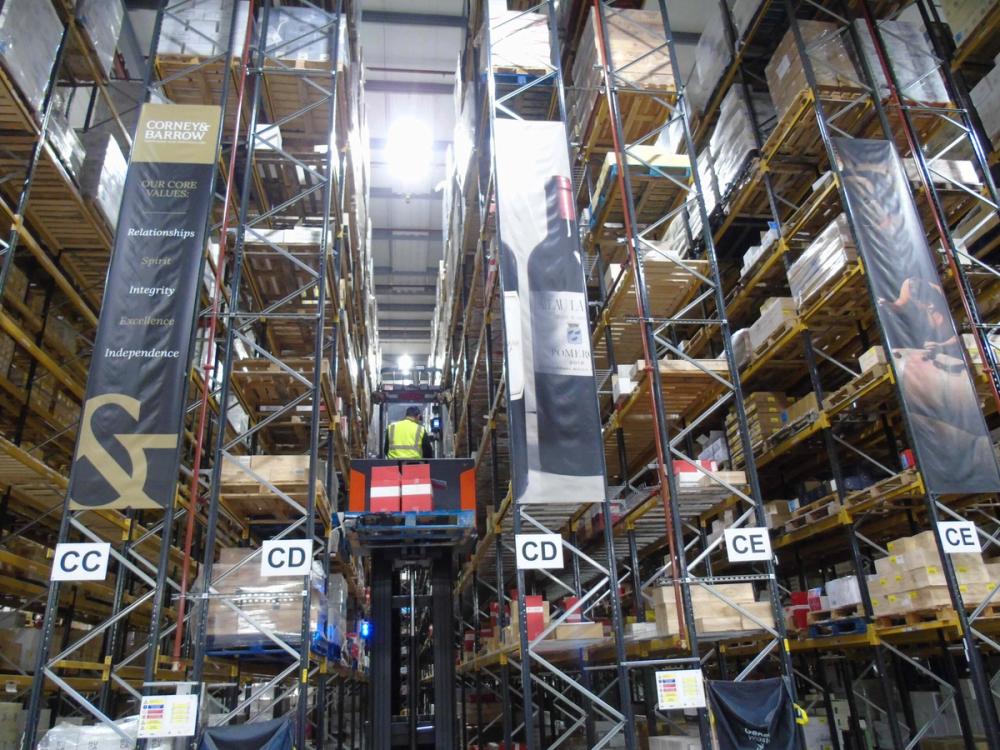
The engine room: Corney & Barrow is constantly looking at ways to improve its warehouse facilities
By consolidating collections in this way, we reduce our shipment costs, mileage and carbon emissions. For less than a full vehicle or shipping container, we use ‘Groupage’, which allows us to group our wines together with others to share space on vehicles, reducing the number of vehicles on the road, which again reduces our carbon footprint.
How did you get into wine?
I worked in pharmaceuticals and beer before joining C&B, so moving into wine seemed a natural progression.
Why did you want to work for Corney and Barrow?
I was taken with C&B’s long history, the two Royal Warrants, the incredible wine portfolio and the staff discount!
What are your hobbies and passions outside of Corney & Barrow?
I like most sports, especially cricket, rugby and golf. Over the last few years, my wife and I have been walking the Southwest coast path with our labrador Monty and when I am not doing that, I am trying to grow my own vegetables in my vegetable garden.
- Corney & Barrow is a partner supplier to The Buyer. You can read more about the business and what it can offer the premium wine market here.
